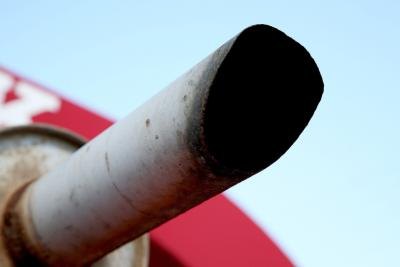Saturday, October 12, 2013
The History of Car Mufflers

The muffler is an important part of the exhaust system on a car. When an engine large enough to power even a small car runs without a muffler, the noise created is extremely loud. Typically, the larger and more powerful the engine, the louder the noise would be. Mufflers were created as a way of reducing and managing the noise created by engines.
Reeves Automobile
The first iteration of the muffler was invented by the early automotive pioneers at The Reeves Pulley Co. Milton Reeves is credited as the inventor of the original muffler for car engines. Because early cars were so loud, they scared horses and angered people who lived in communities where cars were driven. Reeves designed a baffle system that quieted the noise coming from the engine in 1896.
Eugene Houdry
The modern car muffler derives most of its technology from the work of a single man named Eugene Houdry. Houdry was born and educated in France and studied mechanical engineering. Born in the late 1800s, he watched the evolution of the car firsthand and was involved in many of the key steps of its evolution, including contributing to the evolution of both gasoline and aviation fuel. 1962 marked the first patent filed for a catalytic muffler. This design of Houdrys forms the basis for the majority of mufflers used after this time.
Absorption
The original mufflers used baffles to silence the engine. Eventually, designers also realized that using material to absorb the sound from the engine before it emerged from the closed system could reduce the sound. In modern mufflers, these two technologies are often used together. Fiberglass is used quite often as the absorbent material that dampens the sound in a muffler.
Modern Muffler Developments
Mufflers have been quite consistent over the last 50 years of automotive history. However, in the 2000s, some new developments were made in mufflers. Variable flow mufflers have a valve that adjusts as the engine speeds shift. This helps cancel the noise optimally at all engine speeds. Electronic mufflers use noise-canceling technology like that used in noise-canceling headphones to dampen the noise created by the engine. Speakers create sound at the right frequency to cancel out the specific frequencies being generated by the engine.
No comments:
Post a Comment
Note: Only a member of this blog may post a comment.